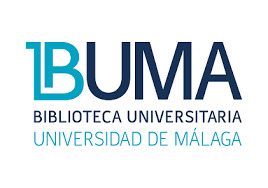Revision
Revisión
Los artículos serán enviados a expertos académicos en la misma área disciplinaria y temática del texto enviado. Los revisores serán seleccionados del panel de árbitros —compuesto por especialistas de instituciones nacionales e internacionales— quienes comentarán sobre la pertinencia y calidad académica del texto presentado y se pronunciarán sobre la factibilidad de publicar el texto en cuestión.
Proceso de seleccion de revisores
Se buscan revisores con una sólida trayectoria en botánica, demostrada a través de publicaciones relevantes en revistas especializadas y una participación activa en investigaciones botánicas. La experiencia en áreas específicas como taxonomía vegetal, ecología de plantas, fisiología vegetal, biotecnología vegetal, o etnobotánica entre otras es altamente valorada, dependiendo del enfoque del artículo a revisar. Los revisores deben estar familiarizados con las técnicas de investigación botánica más recientes, incluyendo métodos de campo, análisis de laboratorio y herramientas de biología molecular aplicadas a plantas. Se valora especialmente el conocimiento profundo de la flora local o regional relevante para el estudio.
La objetividad es crucial, por lo que se seleccionan revisores sin conflictos de interés con los autores o las instituciones involucradas en la investigación. Se busca un equilibrio entre revisores de diferentes regiones geográficas para aportar diversidad de perspectivas, especialmente en estudios que abarquen distintas áreas botánicas o ecosistemas. La capacidad de evaluar críticamente la metodología empleada en los estudios botánicos es esencial. Esto incluye la revisión de diseños experimentales, técnicas de muestreo en campo, métodos de conservación de especímenes y análisis estadísticos apropiados para datos botánicos.
Se valora la experiencia en revisión de artículos científicos, especialmente en el campo de la botánica o áreas afines como ecología o ciencias ambientales. Los revisores deben demostrar habilidad para proporcionar comentarios constructivos que mejoren la calidad científica y la claridad de los manuscritos. El conocimiento actualizado de las tendencias en investigación botánica es crucial. Se prefieren revisores que estén al tanto de los avances recientes en el campo, participen en congresos de botánica y contribuyan activamente a la comunidad científica botánica.
La ética en la investigación botánica es un aspecto fundamental. Los revisores deben estar familiarizados con las normas éticas relacionadas con la recolección de especímenes, el trabajo en áreas protegidas y el uso de conocimientos tradicionales sobre plantas, se busca un equilibrio entre revisores experimentados y científicos en etapas más tempranas de su carrera, para fomentar perspectivas diversas y apoyar el desarrollo de nuevos talentos en el campo de la botánica.
Este proceso de selección meticuloso asegura que los artículos publicados en Polibotánica reciban una evaluación experta y rigurosa, manteniendo altos estándares de calidad en la investigación botánica.
Proceso de revisión por pares
Los revisores serán los encargados de revisar y analizar la pertinencia académica, teórica y metodológica de todos y cada uno de los artículos que les sean asignados. Serán responsables de revisar la presencia explícita de un apartado teórico-metodológico, así como su congruencia con el campo de estudios, la coherencia entre la producción académica y la pertinencia de los hallazgos, así como la actualidad e idoneidad de la bibliografía consultada. a.
Todos los textos serán enviados a dos expertos —adscritos a una institución distinta a la de los autores— quienes expresarán sus comentarios.
En caso de discrepancia entre revisiones, se solicitará a un tercer revisor que resuelva la sentencia.
Finalmente, en base a las recomendaciones de los revisores, la decisión de los editores de POLIBOTANICA será:
- Recomendar su publicación sin modificaciones.
- Recomendar su publicación con cambios menores, que no hagan necesaria una segunda revisión por parte de los árbitros.
- Condiciona su publicación a cambios mayores, lo que hace necesaria una nueva revisión por parte de los árbitros. Este proceso puede repetirse hasta en tres rondas, si al llegar a este punto el documento aún no está recomendado para publicación, será rechazado sin opción a reenvío.
- No se recomienda la publicación.
Para que un texto sea aprobado para su publicación es indispensable que, al menos, dos de las tres sentencias sean positivas.
El consejo editorial se asegurará, en todos los casos, de que las reseñas entregadas a los autores tengan argumentos sólidos para sustentar la decisión editorial.
Los resultados del proceso de revisión editorial serán inapelables en todos los casos.
En caso de observaciones a los artículos, los autores tendrán un plazo de 15 días naturales para enviar al editor la nueva versión del trabajo. En caso de incumplimiento de este plazo, el documento iniciará el proceso de nuevo.
El tiempo de envío del documento a revisión dependerá del número de artículos en lista de espera. Los árbitros, al recibir el artículo, tendrán cuatro semanas para realizar la revisión y entregar el resultado.
Los documentos aceptados iniciarán el proceso de edición (revisión, marcaje de metadatos, maquetación, etc.), para luego ser incluidos en el fascículo correspondiente, según decisión del consejo editorial.
Parametros de evaluación
Los parametros de evaluación son:
|
PARAMETERS |
CRITERIA |
|
TITULO: |
¿Es coherente con el contenido? |
|
RESUMEN |
¿Se incluyen los siguientes artículos en orden? |
|
TEMA |
¿Pertenece al ámbito de la revista? |
|
INTRODUCCION: |
1. ¿Tiene relación con el título? 2. ¿Está claramente descrito el problema? |
|
OBJECTIVO: |
¿Son claras y relacionadas con el tema? |
|
RESULTADOS: |
¿Cumplen con los objetivos marcados? |
|
IMAGENES, GRAFICOS Y FIGURAS: |
1. ¿Son todos necesarios y siguen los estándares de la revista? |
|
CONCLUSIONES Y RECOMENDACIONES: |
¿Están justificadas por los resultados? |
|
BIBLIOGRAFÍA: |
1. ¿Es necesaria la inclusión de bibliografía? 2. ¿Está actualizado? 3. ¿Es suficiente para el tema? |
Tiempo de revision
Prerevision: 21 dias
Primer ronda de revisión 56-84 dias
Revision de las correcciones 28-56 días
Segunda ronda de revision (si es necesario) 56-84 días
Emisión del dictamen de aceptacion: 28- 56 días



















